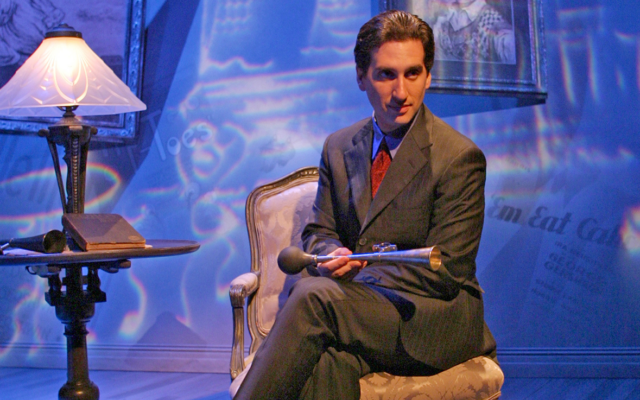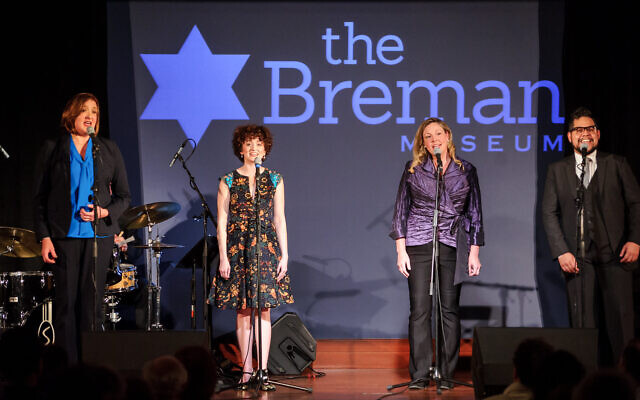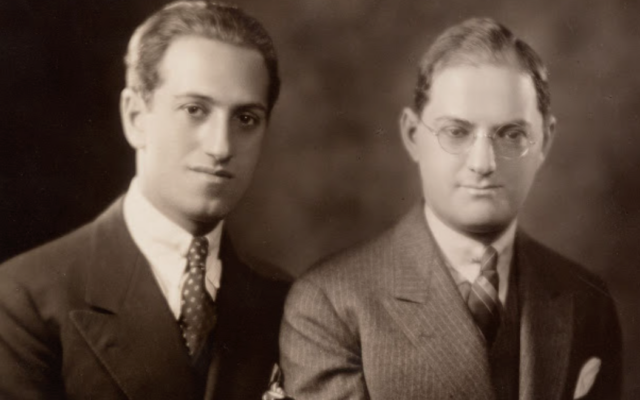Neranenah, Breman Museum Present Gershwin
The music of George and Ira Gershwin received strong performances during a recent April weekend.

Atlanta music audiences received a rare treat during the weekend of April 22-23…back to back concerts that featured the music of George and Ira Gershwin. On Saturday evening, April 22, Neranenah, the Atlanta Jewish music festival, presented Hershey Felder’s one-man show, “George Gershwin Alone,” about the legendary composer, whose brother, Ira, wrote most of the lyrics to the team’s Broadway productions and film music.
The following day, The Breman Museum presented “The Gershwins – Who could Ask For Anything More,” Adam Koplan’s Flying Carpet Theatre Company’s production. It’s another in the Molly Blank Concert Series, which honors the mother of Arthur Blank, the prominent Atlanta philanthropist and co-founder of The Home Depot.
Koplan, who also chairs The Breman’s board, has been a frequent contributor to the series, which often highlights the contributions that Jewish American composers have made to America’s musical heritage.
All of the Gershwins’ biggest hits, which were composed between 1921 and 1937, got polished performances in the two programs. American popular music does not get much better than such songs as “Fascinating Rhythm.” It was an early Gershwin hit for the song and dance team of Fred Astaire and his sister, Adele, in their 1924 success, “Lady Be Good,” or “I Got Rhythm,” originally sung by Ethel Merman in the 1930 hit, “Girl Crazy,” or another standard from the same show, “But Not For Me.”

All the clever lyrics and toe-tapping melodies were here in both performances. There was “S’Wonderful” from “Funny Face” in 1927, and “Let’s Call The Whole Thing Off,” one of the last things the Gershwin’s wrote together. It was done for a Fred Astaire and Ginger Rogers number done on roller skates for the film, “Shall We Dance,” shortly before George Gershwin’s early death in 1937.
Felder has racked up 3,000 performances over the last 30 years of his one-man show. He also brought to life George Gershwin’s showy piano stylings and hard-hitting attack on the keyboard. Felder gave a particularly impressive rendition of “Rhapsody In Blue,” which George composed for Paul Whiteman and his orchestra’s landmark concert in 1924 in New York’s Aeolian Hall. The 25-year-old Gershwin aimed to blend Whiteman’s popular jazz style with Gershwin’s interest in classical music stylings.
Before his early success as a song writer made him instantly wealthy, Gershwin briefly considered devoting himself exclusively to classical music. The story was told that he had approached the French composer, Maurice Ravel, for lessons in classical composition. The French master was said to have replied, “Why should you be a second-rate Ravel when you can be a first- rate Gershwin.”

In addition to his “Rhapsody In Blue,” which has become a standard in the modern symphonic repertory, he wrote “Concerto in F, three Preludes for Piano,” his impressionistic suite, “An American in Paris,” and his ambitious attempt to master opera, “Porgy and Bess.” This 1935 work was, initially, rejected by the Metropolitan Opera.
The Met didn’t get around to producing it until 1985, by which time it had become among the most popular American operas. It was revived by The Met in a stunning sold-out production during the 2019-2020 season. The work had lyrics by his brother, Ira, and a libretto by the Charleston, S.C., native, DuBose Heyward, who also wrote the book upon which the opera was based.
Both Felder in his evening performance and soloist Kate Guyton Morgens on Sunday brought a depth and warmth to the beautiful “Summertime” from Gershwin’s opera.
The partnership between the two Gershwin’s came to a sudden and tragic end in 1937, when George was diagnosed with a brain tumor. The delicate surgery which was done in Los Angeles was unsuccessful. He died at the age of 38. The West Coast in the 1930s was not the prestigious center for medicine that it was later to become and there has been criticism over the years that Gershwin might have survived if the operation had been performed in the east.
Among the tunes that George Gershwin left unfinished was “They Can’t Take That Away From Me,” which was included in both the Breman and Neranenah performances. After his death, Ira added the lyrics, which take on an unmistakable poignancy, as a farewell to the loving relationship the two brothers had developed.
While Ira went on to work with other great composers like Jerome Kern and Harold Arlen, his passion for lyric writing was said to have never been the same after his brother’s passing. Ira died in 1983 at the age of 86.
- Arts and Culture
- Local
- Bob Bahr
- George and Ira Gershwin
- Neranenah
- Atlanta Jewish Music Festival
- George Gershwin Alone
- The Breman Museum
- Adam Koplan
- Flying Carpet Theatre Company
- Molly Blank Concert Series
- Arthur Blank
- Home Depot
- Fred Astaire
- Ethel Merman
- Paul Whiteman
- Aeolian Hall
- Maurice Ravel
- Metropolitan Opera
- DuBose Heyward
- Kate Guyton Morgens
- Jerome Kern
- Harold Arlen
- Hershey Felder



comments